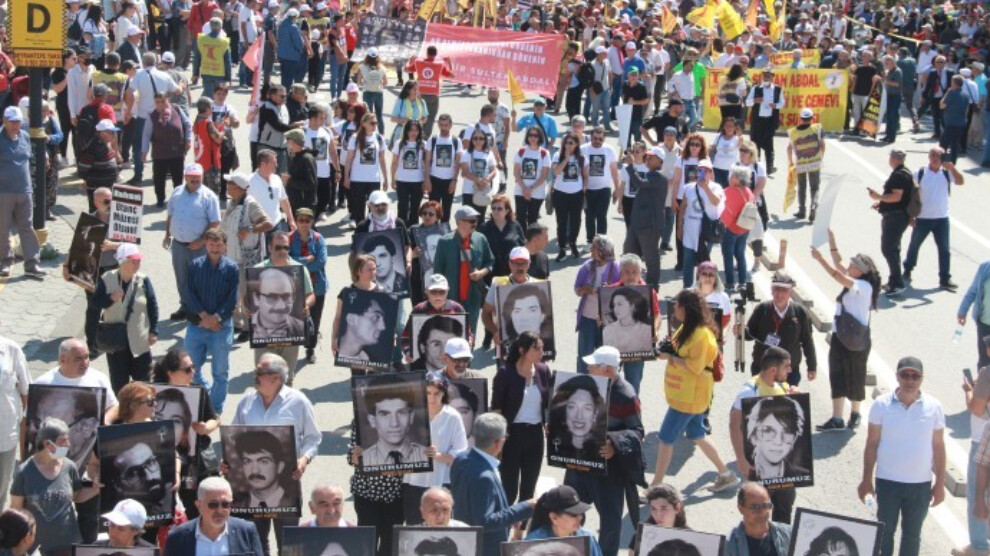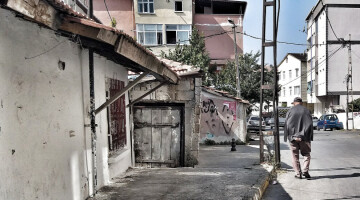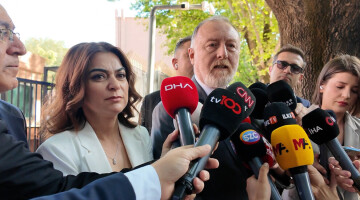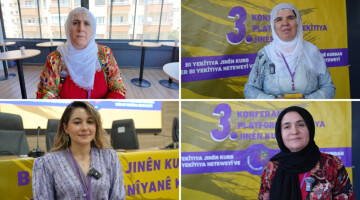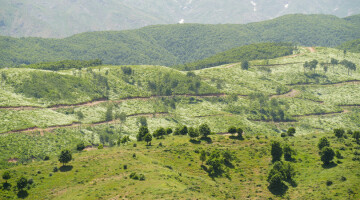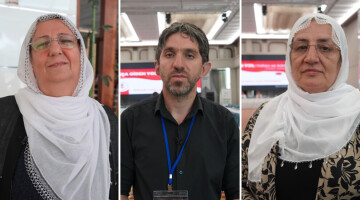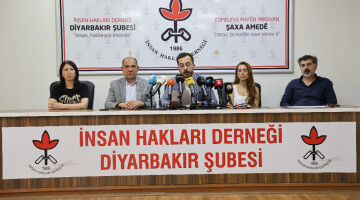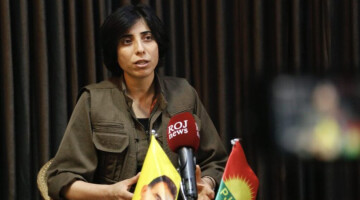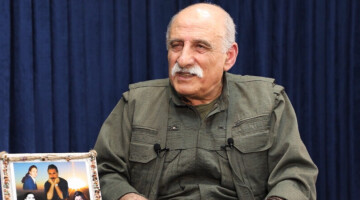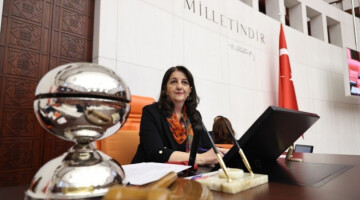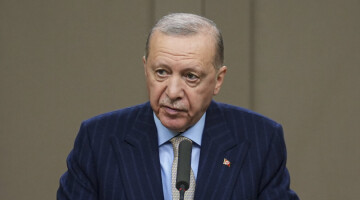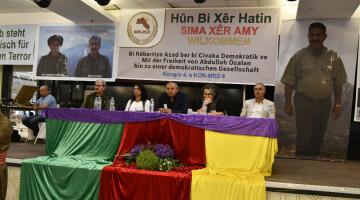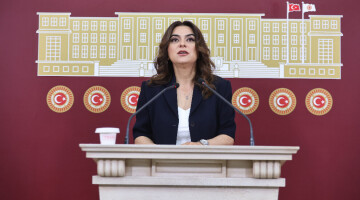Thousands of members of the Alevi faith commemorated the Madımak pogrom in Sivas on Saturday, which took place exactly 29 years ago. The massacre took place on 2 July 1993 and was directed against participants in a cultural festival held in honour of the Alevi folk poet Pir Sultan Abdal in the central Anatolian city. The guests of the festival, who stayed at the Madımak Hotel, were mainly Alevi artists, poets, thinkers, singers and folklore dancers, but also critical intellectuals of different denominations.
A religiously and nationalistically incited mob used the presence of the avowed atheist and well-known writer Aziz Nesin, among others, as a pretext to set fire to the hotel. The trapped people could not escape from the burning building because the angry mob blocked their way and cheered the fire. Although the police, military and fire brigade were alerted, they did not intervene until hours later. The events were broadcast live on state television for hours. 35 people, including two hotel employees, died in the fire at the Madımak Hotel.
The pogrom in Sivas continues to have an impact today. Victims and survivors still have to fight for justice. Neither have the events been dealt with nor has a culture of commemoration and remembrance been established that recognises the suffering of those affected and their survivors. Only a few perpetrators were prosecuted, some of them fled abroad and live unchallenged as asylum seekers in Germany. Criminal proceedings were delayed and declared time-barred. In one of the trials against perpetrators of the Sivas pogrom, President Recep Tayyip Erdoğan even described the statute of limitations as a "joyful event for the people". In 2020, he even pardoned one of the main perpetrators - out of "consideration" for his health condition.
The light of Sivas will never go out
To mark the anniversary of the Sivas massacre, thousands of people gathered in the centre of the city on Saturday for a demonstration. First, a minute of silence was held, then the names of the victims were read out: Muhlis Akarsu (45), Muhibe Akarsu (44), Gülender Akça (25), Metin Altıok (53), Mehmet Atay (25), Sehergül Ateş (29), Behçet Sefa Aysan (44), Erdal Ayrancı (35), Asım Bezirci (66), Belkıs Çakır (18), Serpil Canik (19), Muammer Çiçek (26), Nesimi Çimen (62), Carina Cuanna Thuijs (23), Serkan Doğan (19), Hasret Gültekin (22), Murat Gündüz (22), Gülsüm Karababa (22), Uğur Kaynar (37), Asaf Koçak (35), Koray Kaya (12), Menekşe Kaya (15), Handan Metin (20), Sait Metin (23), Huriye Özkan (22), Yeşim Özkan (20), Ahmet Özyurt (21), Nurcan Şahin (18), Özlem Şahin (17), Asuman Sivri (16), Yasemin Sivri (19), Edibe Sulari (40), İnci Türk (22) as well as the hotel employees Ahmet Öztürk (21) und Kenan Yılmaz (21).
The crowd then marched in a procession in front of the Madımak Hotel, led by relatives of victims holding pictures of their loved ones. There were repeated shouts of "The light of Sivas will never be extinguished" and "The perpetrators of Sivas are the founders of the AKP". There were also loud calls for the former Madımak Hotel to be turned into a "museum of shame". Ever since the massacre, this step has been demanded as a way to come to terms with the past, but in vain. Every government refuses to grant this wish to the survivors and victims. A few years after the massacre, the Turkish leadership authorised the opening of a kebab shop in place of the hotel. After fierce protests, the restaurant was closed, but only in 2009. Two years later, at the instigation of the AKP, a "Centre for Research and Culture" was built in the building.
When the demonstration reached its destination, red carnations were laid in front of the former Madımak Hotel. After another minute of silence, the semah was danced to the accompaniment of Alevi laments. The semah, also known as the "dance of the cranes", is one of the main components of Alevi teachings and is a special form of communal prayer.
The semah was followed by speeches. Cuma Erçe, president of the Pir Sultan Abdal Cultural Association, spoke on behalf of his community and stated: "The wound that Sivas has inflicted continues to bleed in the face of the regime's policies. Madımak was set on fire with our people in it because, even then, the prevailing mentality was based on right-wing extremism, racism and nationalism. This fire has still not been extinguished, as this phenomenon is reflected in the one-man regime today. Those who left us to die a flaming death are the same ones who provide today's government. This fact answers the question of justice denied. But the Sivas pogrom is a crime against humanity. There is no statute of limitations. We, as relatives and representatives of the Alevi public, will continue to walk hand in hand, shoulder to shoulder, fighting for it until justice is done to the victims of the pogrom, their bereaved families and all of us. On 2 July 1993, not only 33 of our loved ones were burnt to death in this place. Values such as secularism, law, justice and democracy also died a flaming death. Our attachment is to the path of bringing these values back to life. We will fight even if it is the last thing we do."
During Cuma Erçe's speech, there were provocations by a group of Turkish right-wing radicals. The crowd protested with slogans, the police present did nothing.

